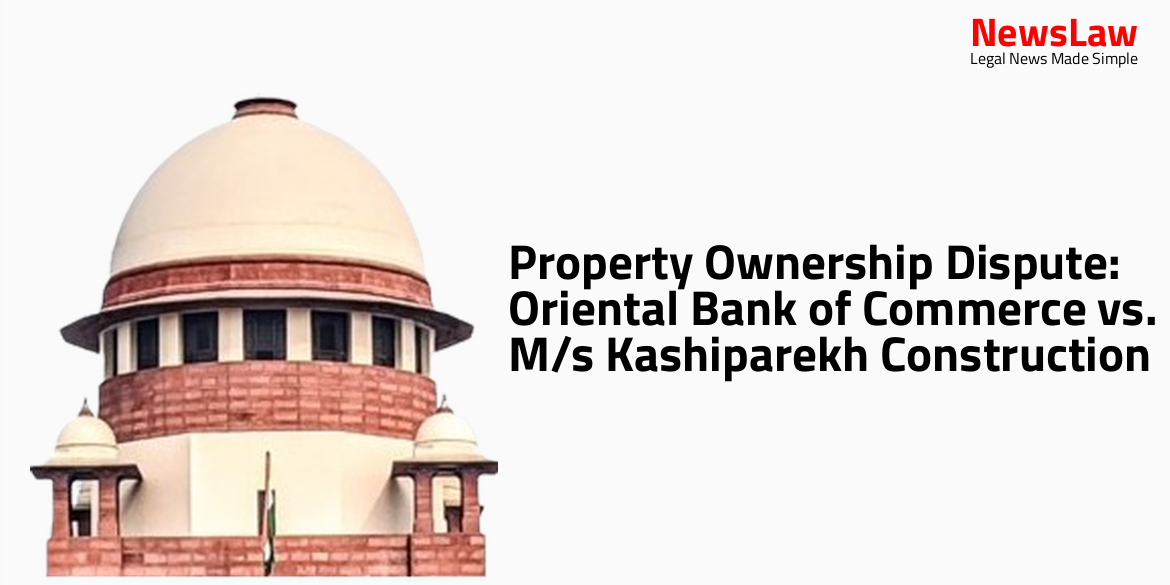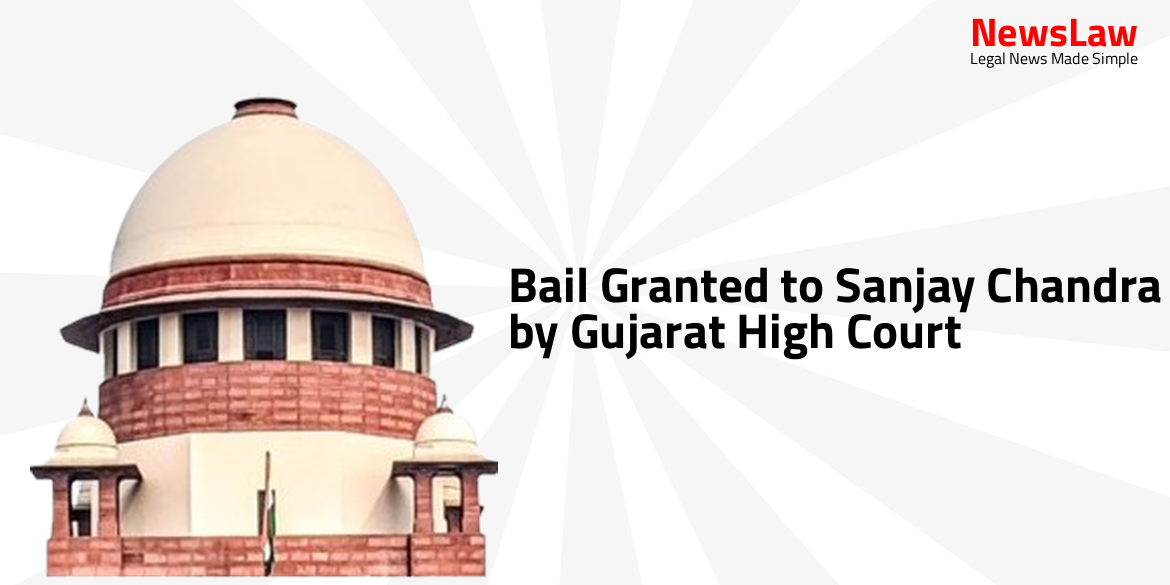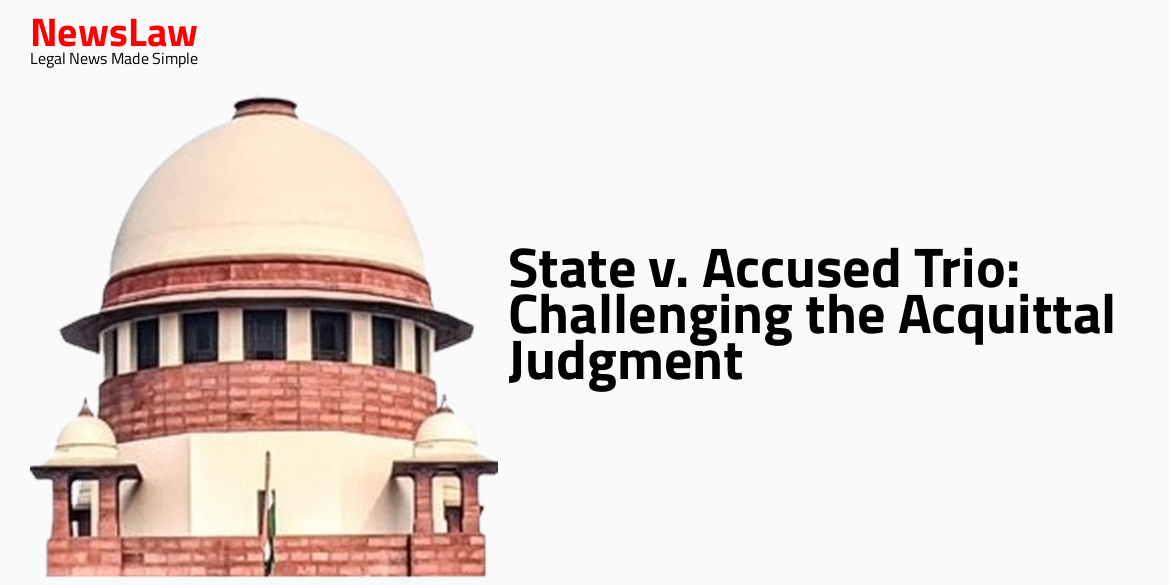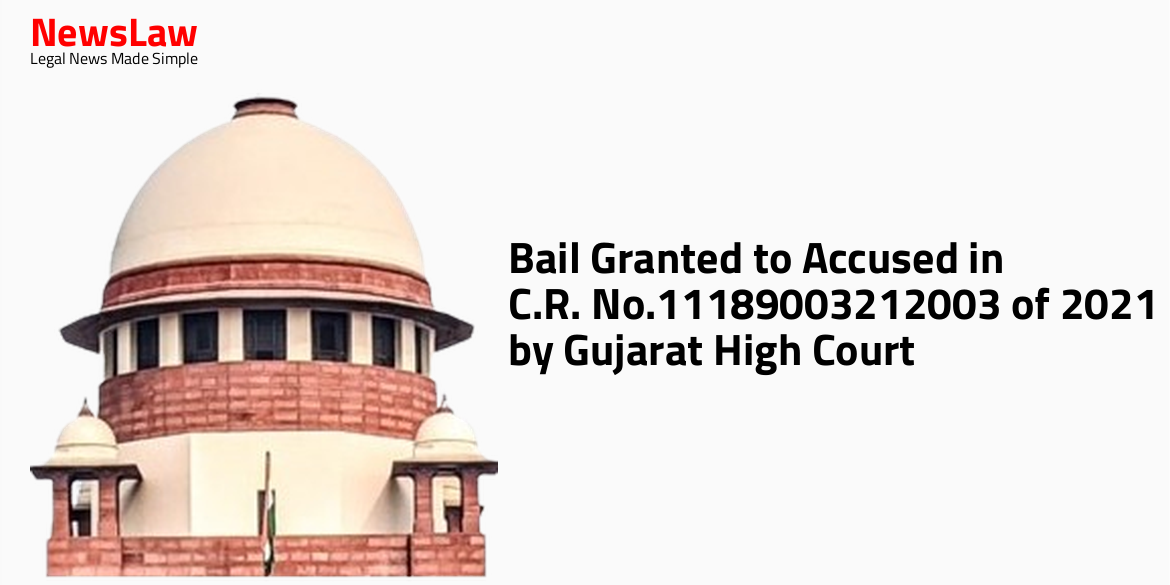In a recent judgement by the Gujarat High Court, a property ownership dispute between Oriental Bank of Commerce and M/s Kashiparekh Construction has been resolved. The court’s decision delves into the intricacies of ownership claims and the authenticity of documents presented in the case. Let’s explore the details of this significant legal battle.
Facts
- Oriental Bank of Commerce filed an OA against M/s Kashiparekh Construction Private Limited & Ors. for recovery of Rs. 54,01,670/-.
- The OA was allowed on 30.03.2000 as per consent terms filed by the parties.
- Recovery Proceedings were initiated by the Certified Creditor due to default by the original borrower.
- The petitioner claimed to have purchased the third floor of the premises from the Certified Debtor in 1998.
- The Recovery Officer rejected the petitioner’s claim on 15.05.2008.
- Petitioner appealed this decision under Section 30 of the Act, 1993, and the appeal was allowed on 16.08.2013.
- The respondent Bank challenged this decision with an appeal before DRAT.
- The petitioner asserted that the property was never mortgaged by the Certified Debtors and had no existing charges.
- The petitioner filed an objection before the Recovery Officer to declare the property free from encumbrances.
- The DRAT allowed the appeal and quashed the judgment and order of DRT-I, Ahmedabad in Appeal No.9 of 2009.
- The order passed by the Recovery Officer dismissing the claim put-forth by the petitioner was restored.
- The decision was in favor of the petitioner.
Analysis
- Petitioner failed to produce the original agreement which would have revealed crucial facts.
- The documents produced by the petitioner were to establish his interest in the property at the time of notice issuance.
- The share certificate produced by the petitioner appears to be forged.
- The documents and agreements seem created to assist the certificate debtor.
- The property tax bill was only produced for the year 2003-2004 and no receipts beyond that date were shown.
- The court notes discrepancies in the agreements and documents presented by the petitioner.
- The court questions the legitimacy of the share certificate and the ownership claims made by the petitioner.
- The court highlights inconsistencies in the evidence provided by the petitioner regarding property ownership.
- The court dismisses the claim of subsequent purchase based on false and forged documents.
- The court emphasizes the lack of evidence supporting the petitioner’s ownership claims in the case.
- The claim made based on a forged document without support is invalid.
- Construction of the third floor and terrace was not available on the date of default by the original borrower.
- No construction of a third floor or booking of units over it or any right on a terrace was legitimate.
- Income Tax Act rules cannot be applied in this case as they are not relevant to the situation.
- The Securitisation and Reconstruction of Financial Assets and Enforcement of Security Interest Act, 2002 and the Act, 1993 are the applicable codes for properties with security interests, allowing attachment and possession without following other rules.
- Reliance on provisions outside of the specific Acts mentioned is misconceived.
Decision
- The petition lacks substance and is rejected.
- Cost of Rs.25,000/- imposed on the Petitioner to be paid to Gujarat State Legal Services Authority within 4 weeks.
Case Title: LALIT CHIMANLAL RAO Vs. PUNJAB NATIONAL BANK
Case Number: R/SCA/7324/2024



